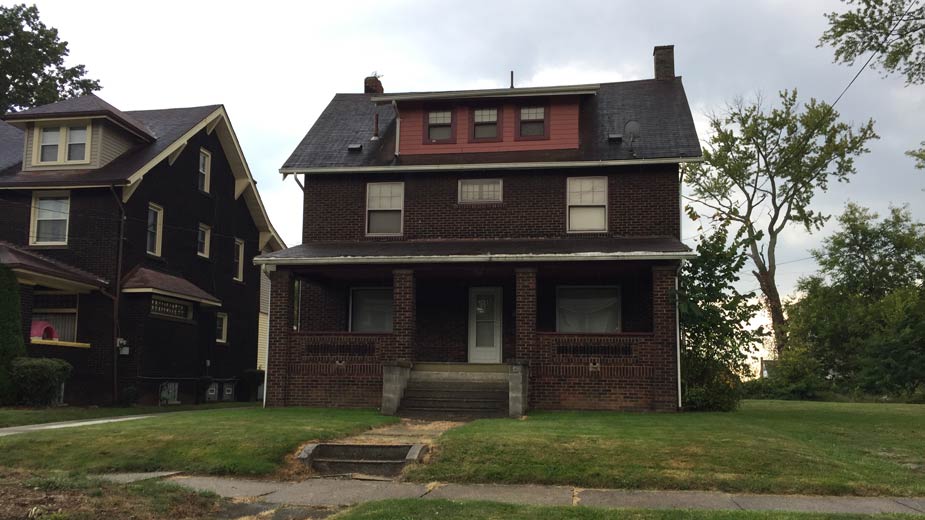Zoning Board Denies Appeals for Sober Houses
YOUNGSTOWN, Ohio – The city Board of Zoning Appeals Tuesday denied the requests of two parties that seek zoning modifications that would allow them to operate three sober living houses on the North Side.
The board denied the request of Braking Point Recovery Housing LLC, Austintown, for reasonable accommodations under the U.S. Fair Housing Act to operate two sober living houses at 455 and 329 Alameda Ave., and denied the same to VEC Enterprises LLC for its bid to operate a sober house at 2259 Selma Ave.
Substance abuse and drug addiction are conditions that are interpreted as disabilities under the Fair Housing Act.
The board voted 5-1 in favor of motions Mayor John A. McNally introduced that asked the board to deny the accommodations for the two houses on Alameda Avenue. Both are in an area of the city zoned specifically for single-family houses.
Law Director Martin Hume voted against the measures.
McNally said he is concerned that the parties made no effort to contact the city for assistance before they established these homes, nor did they examine whether the neighborhoods they chose were zoned for such use.
“Opening the door today with this particular case would have just led to more and more challenges down the road,” McNally said.
The mayor abstained on a motion to deny VEC its request because he was absent last month when the case was first presented to the board. The five other members voted to deny the company’s request.
Scott Kamenitsa, an attorney for Braking Point, said that the company would now evaluate its options on what to do next. One option is to appeal to the Mahoning County Court of Common Pleas.
Providing sober living space for recovering addicts is an essential part of their treatment, Kamenitsa said, and the average stay in the two houses on Alameda runs four to five months.

“This is a natural extension of our services,” he said. Braking Point, which operates addiction recovery centers in Austintown and Columbus, Kamenitsa noted, wishes to operate recovery homes in quiet neighborhoods where those in recovery can live free of drugs or alcohol.
All of the residents in the recovery homes sponsored by Braking Point do not pay rent to stay there.
Kamenitsa reminded the appeals board that the drug epidemic is destroying lives, families and communities, so recovery housing is an important step for addicts. “What we are accomplishing,” he said, “is providing a sober living space somewhere where people who are suffering from addiction can get back up on their feet.”
These properties are well kept and landscaped, he said, and the operations are highly regulated. Nine live in the house at 455 Alameda, another seven at 329 Alameda.
Still, more than two dozen city residents – most from the North Side — attended the meeting and several rose to speak against what they contend is a growing concentration of group homes in this part of the city.
Nancy Carson, who has lived on Fifth Avenue since 1980, said she is sympathetic to those who require treatment, but these houses should be in parts of the city zoned for such use.
Moreover, she said, the city has in the past enabled these homes to open in neighborhoods not zoned for multi-tenant uses and declared it’s time for the these laws be enforced.
“It happens all the time,” Carson said. “It needs to be addressed right now and stopped.”
Former mayor George McKelvey, a lifelong North Side resident, told the board that he’s never seen such a flagrant disregard for the law as these operators have demonstrated.
“They move people in, in violation of our zoning law, and then come to you and say, ‘Could you give us a reasonable accommodation to permit the violations that we’ve exercised on your community?’ ” McKelvey thundered. “It’s outrageous.”
In most cases, residents were not made aware that these sober houses were locating to the neighborhood.
“They never told us nothing,” said Alphonso Cribb, 473 Alameda Ave. “I’m a recovering addict. I’ve been through programs. They just snuck it in; they don’t care what we think.”
McKelvey also spoke out last month at an appeals hearing against the establishment of the VEC house on Selma. However, action was deferred until yesterday’s meeting because not enough neighborhood notifications were distributed in time.
Sal Vecchione, who is the house manager and lives at the Selma residence, told the board that he imposes a 10 p.m. curfew every night, and there are five residents in recovery living there.
“I run a tight ship,” he told the board, “because I care.”
Copyright 2024 The Business Journal, Youngstown, Ohio.



